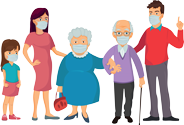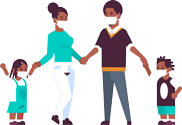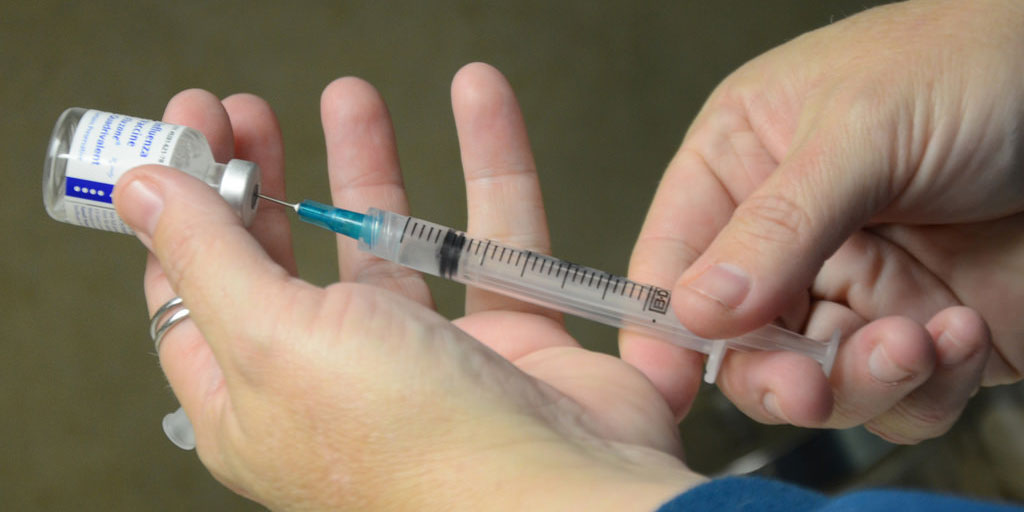Blessings to my Child Life Pediatric Families… I pray that everyone is well and safe in this new and very different era that we have been thrusted into.
First and foremost, I would like to offer my most sincere condolences to anyone who has lost any loved ones to this horrific virus. Please accept my prayers and unwavering support in this difficult time.
Secondly,
If you need me, I am still here for you. Please call my office for questions or for regular visits for your children.
My staff and I have implemented a new and different experience in our office in order to protect our families from Coronavirus exposure when visiting us. Please read this carefully…
– WHEN MAKING YOUR APPOINTMENT, YOU WILL BE SCREENED VIA TELEPHONE ABOUT POSSIBLE EXPOSURE TO CORONAVIRUS.
– THERE WILL NOT BE A WAITING ROOM EXPERIENCE AT CHILD LIFE PEDIATRICS UNTIL FURTHER NOTICE.
– WE ASK THAT WHEN YOU ARRIVE FOR YOUR APPOINTMENT, PLEASE CALL OUR OFFICE AND LET US KNOW THAT YOU ARE IN THE PARKING LOT.
EVEN IF YOU ARE ONLY DROPPING OFF OR PICKING UP PAPERWORK, PLEASE CALL US FROM THE PARKING LOT TO LET US KNOW THAT YOU HAVE ARRIVED.
– WHEN AN EXAM ROOM IS READY, WE WILL CALL YOU TO COME IN. WE WILL MAKE SURE THAT NO ONE IS IN THE ELEVATOR OR IN THE WAITING ROOM WHEN YOU ARRIVE. UPON ARRIVAL, YOU WILL PROCEED DIRECTLY TO THE EXAM ROOM AND WILL SEE THE NURSE AND THE DOCTOR. ALL STAFF WILL BE WEARING MASKS FOR YOUR PROTECTION AND THEIRS. AFTER YOUR APPOINTMENT, WE ASK THAT YOU PROCEED OUT OF THE OFFICE AND CALL FOR ANY ADDITIONAL APPOINTMENTS. WE WILL NOT CALL ANYONE ELSE DOWN UNTIL YOU HAVE LEFT.
-THIS PROCEDURE HAS BEEN WORKING WELL TO PROTECT OUR PATIENTS, FAMILIES AND STAFF SO FAR.
Finally, I would like to offer full disclosure to you on my knowledge, my opinion, thoughts and feelings on Coronavirus.
When reports on the news first aired about Coronavirus cases in China and the fatalities that followed, I prayed for our Chinese brothers and sisters much like I do when I hear of any other unfortunate circumstance that may occur abroad… because in my 20+ years in pediatric practice, I have been caring for patients through quite a few life threatening epidemics. West Nile, SARS, H1N1, and Zika virus to name a few. Never did I imagine, the worldwide impact, the fatalities and spread… and now it is here, in our backyard and front yard, our homes, our workplaces, EVERYWHERE. It is very scary for me, just as it is for all of you. I will continue, as always, to be a reliable resource and will do EVERYTHING that I can to be the best pediatrician to your children. I am here for your questions, your concerns as well as for seeing your child in my office under the safest conditions that I can possibly offer.
Unfortunately, as I mentioned Coronavirus hit us like a ton of bricks and none of us were prepared. The ultimate unfortunate circumstance was that we, as physicians, were just as unprepared as everyone else, which is never a good thing in the face of such a dire global pandemic. Therefore, with all of this uncertainty, I decided that I would give my patients and families as much information as I have and will keep you updated as this new era evolves and more information is accessed.
So, lets start from the beginning…
The virus group known as Coronaviruses are respiratory viruses much like the common cold, in that it infects the upper respiratory tract such as your nose, throat and sinuses. Respiratory viruses all have the potential to spread into the lower respiratory tract such as your lungs and airways. As far as we know, right now, there are seven strains in the Coronavirus viral group. Keep in mind that these coronaviruses have been causing cold symptoms for quite some time but this particular strain that has been causing this pandemic is much much more severe. This deadly strain is officially called Severe Acute Respiratory Syndrome Coronavirus-2 or SARS Cov-2. It has also been named “novel coronavirus”. The name “COVID-19″ comes from the name of the severe respiratory disease that the virus causes which is actually a shortened version of the name “Coronavirus disease 2019″. The number 2019 represents the first known cases, which occurred in December 2019. Thus the name COVID-19. It is called Coronavirus because when it is visualized under a microscope, it looks like a crown. This severe strain is quick to invade the lower respiratory tract and causes pneumonia. This pneumonia creates the shortness of breath symptoms and requires immediate medical attention. Older people with or without underlying conditions have been more susceptible to more aggressive COVID symptoms and poorer outcome. However, those who are infected range in symptoms from mild cold symptoms to severe respiratory symptoms. Several people have no symptoms at all and are common vectors of spread to others because they feel normal and are out and about on their regular daily routines.
The virus is spread by close contact, direct contact and droplets. Even these modes of transmission, however, have been a subject of debate.
The symptoms include fever, dry cough, shortness of breath. Other symptoms are fatigue, headache and body aches. Less commonly seen are congestion and loss of sense of smell/taste. Symptoms usually can be seen from 2 days after exposure all the way up to 14 days after exposure.
This is why most exposed or symptomatic people have been isolated for up to 14 days.
Before I discuss prevention, here is what should be done if symptoms occur..
Not every fever is COVID-19. I realize and can identify with the anxiety that you may will feel if you or your loved ones have a fever right now. I completely understand. However, try to take a deep breath and assess the situation. If no one in your household has knowingly been exposed to the virus and you have been in your home for the past few weeks, chances are low that you have the virus. Is there sore throat, ear pain, runny nose…because these symptoms are not typical of Coronavirus and could be strep, another non-threatening virus, ear infection, sinus infection, etc. You can just call and make an appointment to see me.
The same applies to sneezing, sore throat, headache, cough with no fever and no exposure. Allergy season is here and is adding to the madness of this time..Keep that in mind when assessing yourself and your children. Please call my office if you have questions about this and PLEASE TRY NOT TO WORRY.
Gastrointestinal symptoms such as vomiting and diarrhea have been reported in some patients with coronavirus but once again, if no one in your family has been exposed, these symptoms are likely a stomach virus and if persistent, requires my advice or may warrant a visit to my office, if severe.
Now, if you or someone in your household have been directly exposed to the virus and you have fever cough body aches, then you must proceed to your nearest hospital or urgent care for testing.. If you have shortness of breath, then you need emergency care as soon as possible.
If you test positive for Coronavirus, you must self quarantine for 14 days. The virus usually runs its course in 10-14 days. Household members are considered exposed to you as well, and should be quarantined for the same duration.
Although it has happened, children are less likely to suffer from severe complications of this virus. However, runny nose, congestion, cough are symptoms of many other viruses other than Coronavirus and should be treated as such…The only concern is that if your child was exposed to Coronavirus and has these symptoms with fever, it is likely the virus. Now what does that mean? It really does not mean very much so far. If household members have the Coronavirus and your child has symptoms, it is likely that they have Coronavirus too but there is nothing to do. As deadly as this virus can be, it ranges in its presentation from cold symptoms that are mild to severe disease. Most children only experience the milder cold symptoms and even when they test positive, the only treatment is fever reducers, plenty of fluids and rest. These are the same treatment recommendations for the flu or any other virus…so try not to panic. Be careful, however, if the cough is severe or breathing is labored or difficult or if fever greater than 103 persists, then please proceed to the hospital immediately. Just remember, I would have given you this advice with any virus.
Fortunately, the government mandated school closure and self quarantine measures of people staying home have made it unlikely that your children have been exposed from other children at school or daycare. Therefore, if your household members have not been exposed and have been staying home, then chances are lower that you or your children have the virus.
PREVENTION
Please stay home if possible. When out, please maintain a six foot social distance from others. In close quarters where social distancing is impossible, masks should be worn. In fact, masks should be worn whenever you are out on your daily errands, going to work, etc.
Please do not travel out of state unless it is absolutely NECESSARY.
Please practice thorough hand washing for a minimum of 20 seconds with soap and water.
If you are unsure whether your profession or recent outing might have resulted in an exposure, you should change your clothes and wash your hands and your face before you have contact with anyone in your home.
If you have been nursing your newborn, please continue breastfeeding because long before Coronavirus, research has suggested that nursing babies receive added protection from respiratory pathogens from breast milk. If you are exposed to the virus, you will actually be passing antibodies to your baby.
Please eat healthy and exercise. Coronavirus has been the most dangerous to older people with underlying conditions. Therefore, a healthy diet and exercise (many gyms and trainers are offering online classes) can help to maintain your health and helps your body to defend itself.
Use the social distancing and self quarantine time to get plenty of sleep. A healthy immune system depends on the body’s energy sources for proper functioning.
Take your multivitamins, probiotics, vitamin c and vitamin d. Your body needs these essentials to defend itself so, in addition to a healthy diet, please make sure that your body is stocked with these…
So, having said all of this….
Please try to remain calm and reach out to me with any concerns or questions that you may have. This is a time that has been difficult for all of us and being anxious or nervous is normal. This is why I wanted to offer you this information and guidance to help you. I will continue to offer you my best and will be here for you in any way that I can. I pray for all of you daily and ask God to wrap His arms around each and every one of you.
I love and appreciate you. Please stay safe and God bless you.
Robyn Cadet, MD

 IMPORTANT: COVID-19 Notice, Click HERE
IMPORTANT: COVID-19 Notice, Click HERE








